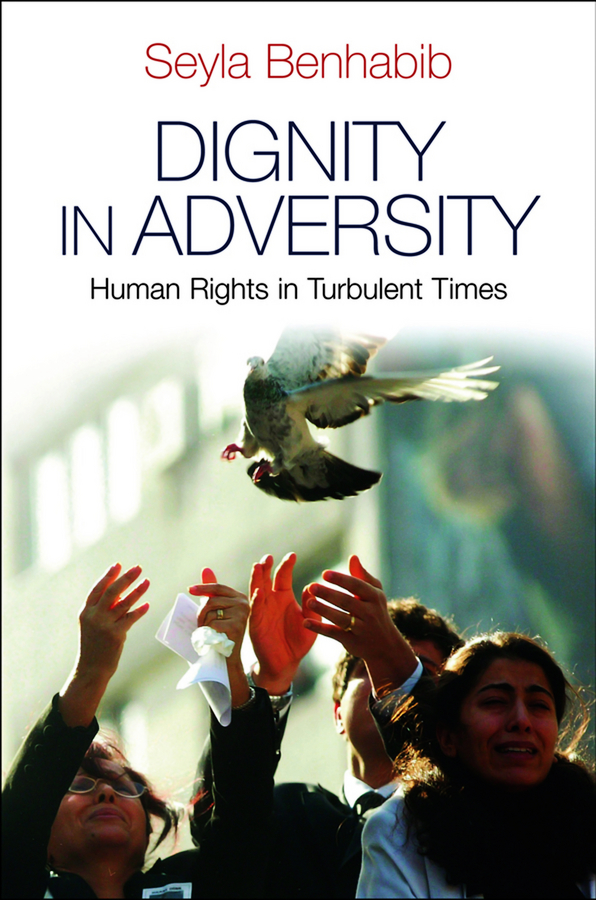Электронная книга: Seyla Benhabib «Dignity in Adversity. Human Rights in Troubled Times»

|
The language of human rights has become the public vocabulary of our contemporary world. Ironically, as the political influence of human rights has grown, their philosophical justification has become ever more controversial. Building on a theory of discourse ethics and communicative rationality, this book addresses the politics and philosophy of human rights against the background of the broader social transformations that are shaping the modern world. Rejecting the reduction of international human rights to the Trojan horse of a neo-liberal empire's bid for world power, as well as the conservative objections to legal cosmopolitanism as encroachments upon democratic sovereignty, Benhabib develops two key concepts to move beyond these false antitheses. International human rights norms need contextualization in specific polities through processes of what she calls'democratic iterations.'Furthermore, such norms have a'jurisgenerative power,'in that they enable new actors to enter fields of social and political contestation; they promote new vocabularies for public claim-making and anticipate a justice to come. Ranging over themes such as sovereignty, citizenship, genocide, European anti-semitism, the crisis of the nation-state, and the'scarf affair'in contemporary Europe and Turkey, this major new book by one of our leading political theorists reflects upon the political transformations of our times and makes a compelling case for a cosmopolitanism without illusions. Издательство: "John Wiley&Sons Limited"
ISBN: 9780745675756 электронная книга Купить за 5459.42 руб и скачать на Litres |
Seyla Benhabib
Seyla Benhabib (born 1950,
Democratic theorists
Democratic theorists advocate discussion within cultures and support social change. Seyla Benhabib is a democratic theorist who doesn’t believe in the purity of cultures; she thinks of them as formed through dialogues with other cultures. Human cultures are, according to Benhabib, the constant change of imaginary boundaries. They influence each other and sometimes radicalize or conform as a reaction on other cultures. Benhabib argues that in democratic theory it is assumed that every single person should be able to determine his or her own life. She argues that pluralism, the existence of fundamentally different cultures, is compatible with
1) Egalitarian reciprocity: Members of
2) Voluntary self-ascription: When a person is born, he must not be automatically be expected to be member of a
3) Freedom of exit and association: Every individual must be able to exit their group. When group members marry someone from another group, they have the right to remain member. For intergroup marriages and the children of these people accommodations must be found.
It is a contested issue whether cultural diversity and democratic equality can co-exist. Many
Porous Borders
Seyla Benhabib prefers a world with porous
Selected Bibliography
Books
* "Another Cosmopolitanism" (Oxford University Press, 2006)
* "The Rights of Others" (Cambridge University Press, 2004)
* "The Reluctant Modernism of Hannah Arendt" (Rowman and Littlefield, 2003)
* "The Claims of Culture" (Princeton University Press, 2002)
* "Democracy and Difference" (Princeton University Press, 1996)
* "Critique, Norm and Utopia"
* "Situating the Self: Gender, Community and Postmodernism in Contemporary Ethics" (Routledge, 1992)
Articles
* “Modernity and the Aporias of Critical Theory”. "TELOS" 49 (Fall 1981). New York: [http://www.telospress.com Telos Press]
See also
*
*
*
*
External links
* [http://www.yale.edu/polisci/people/sbenhabib.html Official Yale Site]
* [http://globetrotter.berkeley.edu/people4/Benhabib/benhabib-con0.html Conversation with Seyla Benhabib]
* [http://philosophytalk.org/pastShows/Arendt.html Radio interview] on "Philosophy Talk"
Источник: Seyla Benhabib
Другие книги схожей тематики:
| Автор | Книга | Описание | Год | Цена | Тип книги |
|---|---|---|---|---|---|
| Seyla Benhabib | Dignity in Adversity. Human Rights in Troubled Times | The language of human rights has become the public vocabulary of our contemporary world. Ironically, as the political influence of human rights has grown, their philosophical justification has become… — John Wiley&Sons Limited, электронная книга Подробнее... | 5459.42 | электронная книга |
См. также в других словарях:
United States — a republic in the N Western Hemisphere comprising 48 conterminous states, the District of Columbia, and Alaska in North America, and Hawaii in the N Pacific. 267,954,767; conterminous United States, 3,022,387 sq. mi. (7,827,982 sq. km); with… … Universalium
literature — /lit euhr euh cheuhr, choor , li treuh /, n. 1. writings in which expression and form, in connection with ideas of permanent and universal interest, are characteristic or essential features, as poetry, novels, history, biography, and essays. 2.… … Universalium
UNITED STATES OF AMERICA — UNITED STATES OF AMERICA, country in N. America. This article is arranged according to the following outline: introduction Colonial Era, 1654–1776 Early National Period, 1776–1820 German Jewish Period, 1820–1880 East European Jewish Period,… … Encyclopedia of Judaism
performing arts — arts or skills that require public performance, as acting, singing, or dancing. [1945 50] * * * ▪ 2009 Introduction Music Classical. The last vestiges of the Cold War seemed to thaw for a moment on Feb. 26, 2008, when the unfamiliar strains … Universalium
France — /frans, frahns/; Fr. /frddahonns/, n. 1. Anatole /ann nann tawl /, (Jacques Anatole Thibault), 1844 1924, French novelist and essayist: Nobel prize 1921. 2. a republic in W Europe. 58,470,421; 212,736 sq. mi. (550,985 sq. km). Cap.: Paris. 3.… … Universalium
Judaism — /jooh dee iz euhm, day , deuh /, n. 1. the monotheistic religion of the Jews, having its ethical, ceremonial, and legal foundation in the precepts of the Old Testament and in the teachings and commentaries of the rabbis as found chiefly in the… … Universalium
